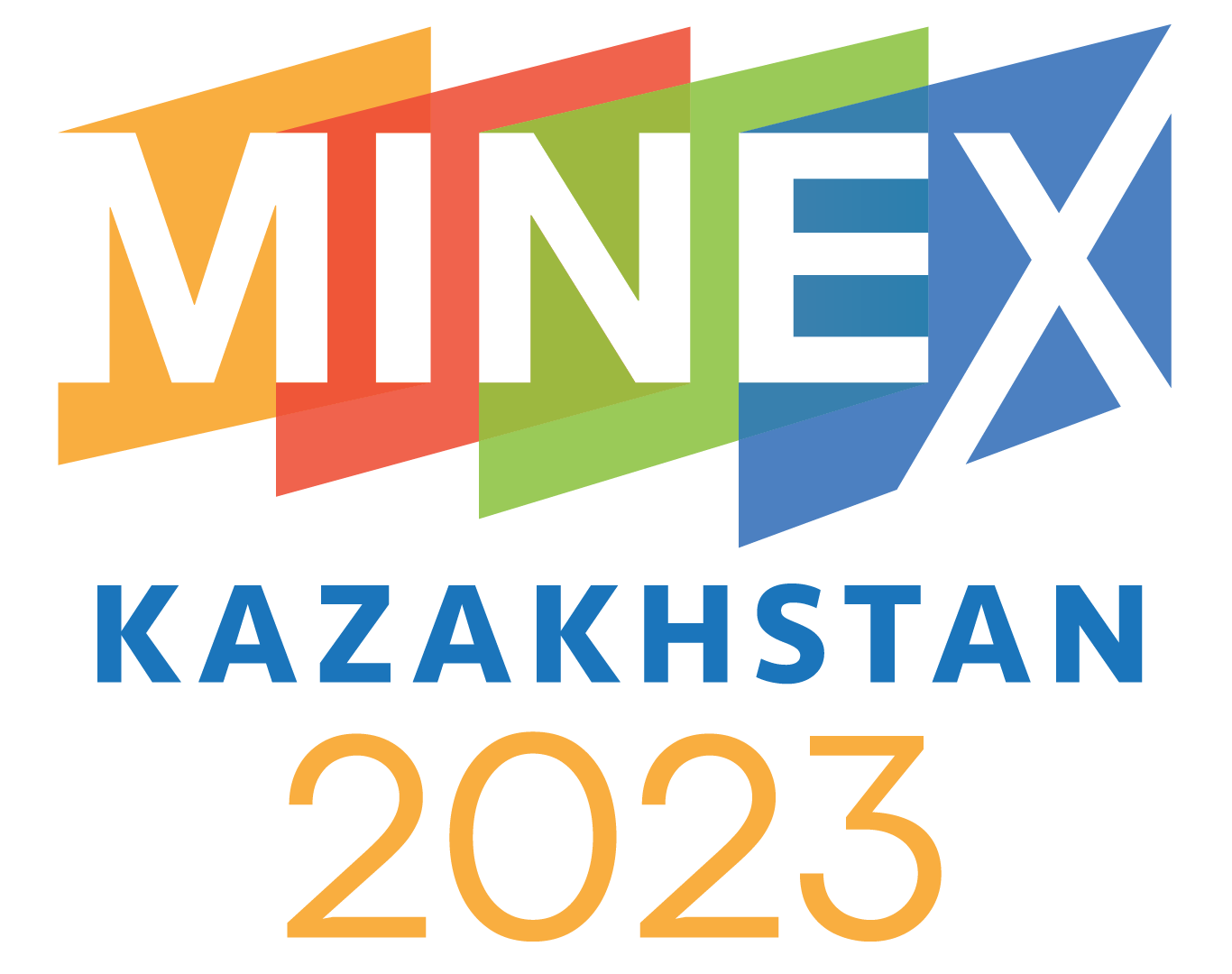Agenda – 20 April
2nd Digital Transformation Conference
The key challenge facing Kazakhstan is the low reproduction of reserves. To accelerate the development of geological science and provide raw materials to the manufacturing industry in Kazakhstan, the National Geological Service was created and the National Geological Strategy for 2023-2027 was adopted by the Government. To facilitate access to geological information, an interdepartmental information system “KAZNEDRA” is being created. To address the issues and improve exploration efficiency the Industry will implement advanced information and digital technologies.
- New models of industry management based on the seamless movement of machine-readable data from the stages of exploration to production and processing.
- Development of a single interdepartmental platform for subsoil use “Kaznedra”.
- Creation and digitalisation of mineral core storage facilities.
- Digital mapping of geological structures in Kazakhstan.
- Using artificial intelligence (AI) to enhance the prediction and analysis of mineral resources.
- Improvement of remote sensing and GIS-based mapping techniques.
- Using machine learning algorithms to predict geological formations.
- Integration of geophysical data with satellite imagery to improve survey accuracy.
- Application of artificial intelligence technologies and drones to obtain images and data in hard-to-reach regions.
- The use of digital technologies in the analysis and implementation of investment projects.

09:10 - Lessons Learned from the application of remote operations centers in Mining Operations Australia and the Americas

09:20 - Digitization of mining management powered by K-MINE

09:30 - The age of data: collection, processing and interpretation

09:40 - Cases of improving the efficiency of drilling and blasting operations based on the use of digital technologies of the MGIS GEOMIX and dispatching systems

09:50 - Mining Data Management

10:00 - Digital transformation of drilling operations

10:10 - Blast Digital Twin to support sustainable mining


10:10 - Vertical material lifting solutions and analysis of the topography of the potential area with the placement of equipment

10:20 - WEIR Minerals - New Opportunities

10:30 - Purolite ion-exchange resins in technologies for extracting and purifying valuable components from solutions

10:40 - Normet battery electric equipment

Kazakhstan, like other transit economies, faces unique opportunities in the digital economy. This will require a transformation in how businesses work to use digital technologies and data to create value. This also opens up opportunities for digital transformation through the use of new digital platforms and the application of business models to optimise the functioning of the various sectors of the economy and the allocation of resources.
- Technological solutions of industrial automation and digitalisation to optimise production processes.
- Digital projects in the mining industry: verification, visualization, automation of management; development of an automated system of technical service and repairs; geomechanical modelling of deposits; creation of 3D models of the infrastructure assets, etc.
- Use of Digital predictive technology to prevent failures and maintain repairs.
- Software and computer-based models for forecasting and designing blasting operations in quarries.
- A digital twin of mine transport systems.
- The digital twin of the mining and processing enterprise.
- Unified automated control systems for the mining and transport complex.

11:40 - Implementation of a Production Information Management System in the ERG Group

11:45 - Optimization of flotation cycle management at the Bakyrchik mining enterprise using artificial intelligence on the brains.app platform

11:55 - Building a road map to a world-class digital mine

12:05 - Digital mine - automation of accounting and planning using 1C solutions

12:15 - Automation and digitalization in the mining industry

12:25 - Intelligent system for automated process control of concentrating plants

12:35 - Revolutionising Process Control: Harnessing Physics-Informed Machine Learning Models for Enhanced Profitability, Robustness, and Sustainability in the Mining Industry

12:45 - Real time particle size monitoring from every cyclone for optimization of grinding and beneficiation line net metal production

12:55 - Geminex™ – Technology Digital Twin for Concentration and Metals

The business track is held in a specialised area which is open to both forum participants and exhibition visitors. At the business track venue, companies and Forum participants can present their technologies, cases and products.

11:40 - Modern magnetic exploration complex using UAV carriers

11:50 - Modern geological exploration technologies.

12:00 - Improving the quality of prospecting and appraisal work

12:10 - Comparative analysis of the homogeneity of ore gold-bearing standard samples of elemental composition from world manufacturers

12:20 - Mobile scanning with a RIEGL terrestrial scanner and other company innovations

12:30 - AEM survey of the Neretva Delta (Croatia): a case study for hydrogeology

12:40 - Magnetization vector 3D inversions of airborne magnetic data flown over Grib kimberlite pipe

Given the vast areas of Kazakhstan, the effectiveness of geological forecasting and exploration largely depends on the use of advanced technologies, comprehensive analysis and the high competence of specialists. In Kazakhstan, a course has been taken to modernise the geological industry using innovative exploration methods. Modernisation of the industry is critically important for improving the quality of valuation of prospective areas and determining the best methods for their development and production.
- Modernisation of industry practices to improve the quality of mine valuation.
- Development of technologies that allow real-time collection, processing and analysis of geological survey data.
- Automation of routine manual work to improve quality and speed up processes.
- Creation of continuous chains from the digital core, geological research data, seismic exploration, and regional and basin modelling to digital geological models.
- Automating updates of geological models based on constantly incoming new data.
- Application of Big Data and Data Mining technologies to improve the accuracy of planning and the speed of decision-making.
- Improving the quality of field assessment and determining the best methods for their development and operation.
- Computer simulation of drilling and blasting parameters to increase the profitability of production.

14:10 - DasVision 3D Induced Polarization: Case Studies from Canada and Kazakhstan

14:20 - Geological targeting as the most effective tool for forecasting and prospecting for ore deposits

14:30 - Improving the efficiency of geological exploration through the use of modern drilling technologies

14:40 - Pros and cons of optimizing field work in ore deposits exploration

14:50 - Experience in solving search problems for ore minerals

15:00 - Mineralogical criteria of ore-bearing granitoid massifs

Among the countries with a high dependence on mineral resources, Kazakhstan is at a transition stage. To overcome the technological lag of the industries and create new base points of innovative growth, Kazakhstan is intensifying the introduction of digital technologies and developing cooperation between applied science and industrial enterprises. The issue of training personnel for the transition to Industry 4.0 has become key for mining enterprises.
- Creating a culture of production that embraces innovation and change.
- Regulation at the legislative level of R&D of subsoil user companies with the National Scientific and Technical Council.
- Strengthening partnerships with universities and technology providers to develop innovative approaches to education, research and development in the field of digitalisation of mining.
- Examples and prospects of scientific and technical cooperation between universities and subsoil user companies on the creation of pilot industrial installations for testing and industrial implementation of innovative technologies.
- Industry training system for the transition to Industry 4.0.
- Development of competence centres for the training of specialists in the development of digital technologies in the mining industry.
- Advanced methods and technologies of training, management and efficiency improvement.
- Incorporating new analytical tools and software into existing HR processes to improve data collection and decision-making capabilities.
- The use of digitalisation and automation tools to increase efficiency and minimise costs associated with time-consuming processes.

14:40 - Underground ventilation: digitalization, innovation, energy efficiency

14:50 - Cases of digital projects in production

15:00 - Ore loss and dilution from open pit mining. Prediction based on block model and comparison with actual mining

15:10 - Digitalization of pumping and compressor park based on BigData technology and Machine learning

15:20 -
The mining and metallurgical industry are one of the three largest emitters of greenhouse gases. Green transformation, climate management and mining waste management are important for protecting the environment and promoting sustainable development. The transition to carbon neutrality will require huge investments in new products and energy technologies. The stability of the tax burden and the tax environment is an important factor affecting the investment planning and “green” development of Mining companies.
- Review of changes in environmental regulatory requirements in Kazakhstan.
- State incentives to stimulate the “green” transformation of the mining industry and the transition to carbon neutrality in Kazakhstan.
- Establishing transparency and sustainability of supply as key principles of the “green economy”.
- Experience in implementing ESG principles in the mining industry.
- Identification of potential opportunities and evaluation of the effectiveness of decarbonisation technologies in the mining industry.
- Creation of renewable energy sources for mining.
- Use of CO2 monitoring and capture technologies at mining and metallurgical enterprises.
- Projects aimed at decarbonisation of production – successful experiences.
- Transition to a circular economy to improve the management of resources, materials and waste.
- Experiences in introducing new standards for land reclamation and post-mining reconciliation.
- Development of the market for carbon units (VCM).

16:10 - The value of your ESG data in your digital transformation journey

16:20 - Schneider Electric solutions in the context of the ESG agenda

16:30 - Developing a practical Carbon Reduction strategy

16:40 - Kounrad SX-EW Operation – A Scientific Approach To The Project Closure

16:50 - Renewables as a tool of mining industry decarbonisation

17:00 - Sustainable development strategy at a gold mining company

17:10 - Energy Efficiency, Energy Saving and Decarbonization Program at Kazatomprom

17:20 - Man-made disasters at tailings: Engineering and geological features of the formation of tailings

17:30 - The increasing importance of social license to operate (SLO) in Kazakhstan







